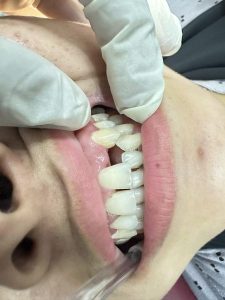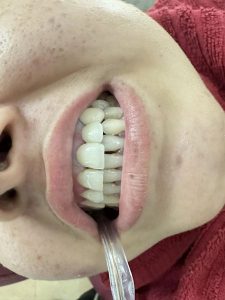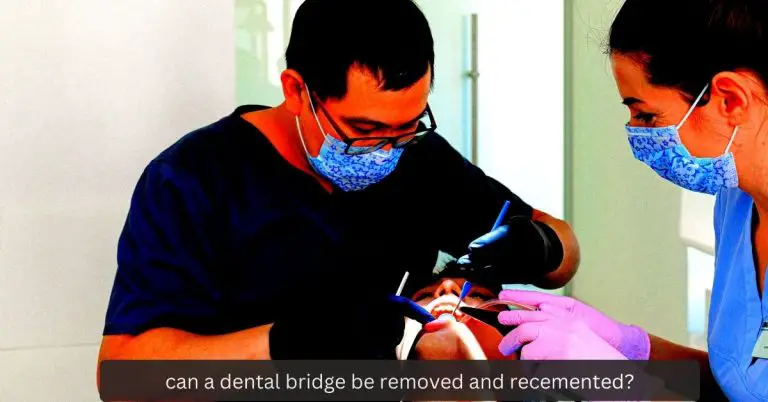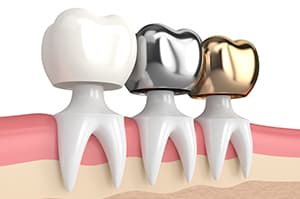Last Updated on 3 weeks by DR. ALBIN SIPES
A dental crown is a tooth-shaped “cap” that is placed over a tooth to cover the tooth and restore its shape, size, strength, and appearance. Crowns are made of different materials, such as porcelain, metal (gold), or ceramic. They are usually used when a tooth is cracked or broken, has been worn down by grinding or chewing, has had a large filling in it that needs to be replaced or is misshapen.
Dental crowns are one of the most common dental procedures. They are used to restore damaged or decayed teeth. Crowns can also be used to improve the appearance of your smile.
There are two types of crowns: porcelain and ceramic. Porcelain crowns are made from a mold of your tooth and then covered with a thin layer of porcelain. Ceramic crowns are made from a mold of your tooth and then covered with a thin layer of ceramic.
Before having a dental crown placed, your dentist will take an impression of your tooth. This impression will be used to make the mold for your new crown. Your dentist will also determine the size, shape, and color of your new crown.
Once the impressions are made, your dentist will place the new crown over your tooth. A temporary adhesive will be used to hold the crown in place until it is fully healed. It is important to avoid chewing on hard foods or biting your nails while you have a temporary dental crown in place.
After the procedure, you should expect some sensitivity in your tooth for a few days. You may also experience some discomfort when chewing or brushing near the crowned tooth. These symptoms should subside within a week or so as you adjust to having a new dental Crown.

How Long Do Crowns on Teeth Last?
Crowns on teeth are designed to last a long time, but they don’t last forever. With proper care, your crown could last for over 10 years. However, there are several factors that can affect how long your crown will last.
The type of crown you have plays a big role in how long it lasts. Porcelain or ceramic crowns are the most durable and longest-lasting type of crown. They resist wear and tear better than other types of crowns and blend in well with your natural teeth.
Metal crowns, on the other hand, are not as strong as porcelain or ceramic and can chip or break more easily. Your oral hygiene habits also play a role in how long your crowned tooth lasts. Be sure to brush twice a day and floss regularly to remove plaque and bacteria from around the crowned tooth.
This will help prevent decay and keep your crowned tooth looking its best. Finally, the location of the crowned tooth can also affect its longevity. Back teeth (molars) typically undergo more wear and tear than front teeth and so may not last as long as front teeth Crowns.

What are the Disadvantages of Dental Crowns?
There are a few disadvantages to dental crowns. First, they are not as strong as natural teeth and can break under too much force. Second, they can sometimes cause gum irritation or inflammation.
Third, they can trap food and plaque bacteria, which can lead to tooth decay. Finally, they can be expensive to replace if they break or become damaged.
Are Crowns on Front Teeth Noticeable
Crowns are a type of dental restoration that are commonly used to repair damaged or decayed teeth. They are also sometimes used for cosmetic purposes, to improve the appearance of teeth that are misshapen or discolored. Crowns can be made from a variety of materials, including porcelain, ceramic, and metal.
Porcelain crowns are often considered the most natural-looking option, as they can be matched to the color of your existing teeth. However, they are also more fragile than other types of crowns and can chip or break if not cared for properly. Metal crowns are the strongest type of crown available, but they can also be the most noticeable due to their silver color.
Ceramic crowns fall somewhere in between porcelain and metal in terms of strength and appearance. No matter what type of crown you choose, it is important to take good care of it to ensure that it lasts as long as possible. Be sure to brush and floss regularly and avoid chewing on hard foods or objects that could damage your crown.
If you have any concerns about your crowned tooth, be sure to talk to your dentist right away.
Crowning All Front Teeth for Looks
A lot of people think that crowning all front teeth for looks is a great idea. After all, who doesn’t want to have a perfect smile? However, there are some things you should consider before making this decision.
First of all, it’s important to understand that crowning all front teeth is a very permanent decision. Once your teeth are crowned, there’s no going back. So if you’re not sure if you want to commit to this look, it’s best to hold off until you’re certain.
Another thing to keep in mind is that this procedure can be quite expensive. Depending on the severity of your case and the number of teeth involved, the cost can range anywhere from a few thousand dollars to tens of thousands of dollars. So if you’re considering this option, be sure to factor in the cost before making any decisions.
Finally, it’s also worth noting that crowned teeth require extra care and maintenance. Because they are covered with a hard porcelain material, they are more susceptible to staining and chipping than regular teeth.
How Strong are Crowns on Front Teeth
Crowns are one of the most popular dental procedures. They are also one of the most effective ways to protect your teeth from damage. But how strong are the crowns on the front teeth?
The answer may surprise you. Crowns are actually quite strong, and they can withstand a lot of force. In fact, they are so strong that they can even be used to support bridges.
So, if you are considering getting a crown for your front tooth, rest assured that it will be able to handle the force of your bite.
Conclusion
If you’re considering getting a dental crown, you may be wondering what the procedure is like and what your smile will look like afterward. Here’s a quick overview of what to expect before and after getting a dental crown. Before getting a dental crown, your dentist will examine your teeth and take X-rays to determine if a crown is necessary.
If so, they’ll prepare your tooth by removing any decay or damaged tissue. Next, they’ll take an impression of your tooth which will be used to create the custom crown. In some cases, you may be able to get same-day Crowns which means you won’t have to wait for the permanent crown to be made.
Once the preparation is complete, it’s time for the placement of the dental crown. The new crown will be carefully placed over your prepared tooth and held in place with temporary cement. Once it’s in place, your dentist will check to make sure it fits properly and make any adjustments as needed.
Finally, the permanent cement will be used to secure the crown in place. After getting a dental crown, you should avoid chewing on hard foods or anything that could potentially damage the new crowned tooth. brush and floss regularly as you would with your other teeth and see your dentist for regular checkups.
With proper care, your new dental crown can last for many years!



